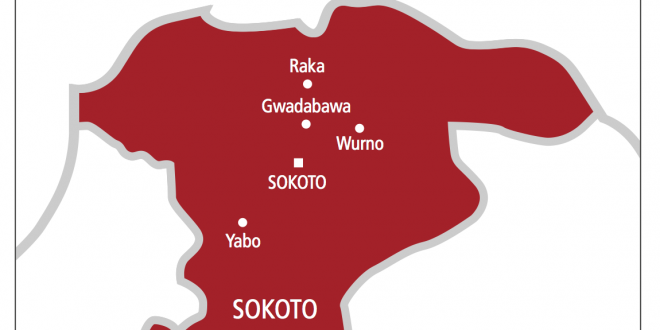The Sokoto State government on Friday met with traders, traditional and religious leaders in the state over the current hardship in the country.
The one-day sensitisation meeting held at the International Conference Hall, Kasarawa along the Airport road was tagged “High Cost of Food and Essential Commodities: Causes and Solution”.
The meeting was co-chaired by the Commissioners of Commerce and Industry as well as that of Religious Affairs, Haruna Abbas and Jabir Maihula. In attendance were leaders of the traders and renowned clerics in the state.
In his remarks, the Commissioner of Commerce, Abbas, said the meeting was necessary in view of the current hardship in the state and the country at large.
- Hardship: FG sets up committee to combat hoarding, considers state police to tackle Insecurity
- Hardship: Tinubu, governors in crucial Aso Rock meeting
“Some of the causes of high cost of living as identified in this meeting include some policies of the federal government like fuel subsidy removal and the current insecurity which forced many farmers to stop farming.
“And there is another reason which borders on attitude of some of our traders because we learnt that some have been hoarding food items while others smuggle it to the neighbouring Niger Republic.
“Let me advise these traders to stop doing this. If they fail to heed to our advice we will take the necessary measures against them,” he said.
Also speaking, the Speaker of the Sokoto State House of Assembly, Tukur Bodinga, said members had deliberated on the matter and made some vital recommendations to the government among which was the blockage of food items smuggling and hoarding.
One of the religious leaders, Sheikh Isa Talatan Madara, advised the government to reintroduce price control because of the way prices of commodities were skyrocketing in the country.
Some of the clerics also advised the federal government to either reverse fuel subsidy removal or used the money saved from the subsidy to subsidize food items.
They also called on the government to, as a matter of urgency, address insecurity as this would enable farmers to go back to their farms.

 Join Daily Trust WhatsApp Community For Quick Access To News and Happenings Around You.
Join Daily Trust WhatsApp Community For Quick Access To News and Happenings Around You.


